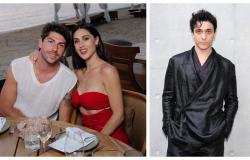Those who have a literary and twentieth-century posture always look at the bestseller with a bit of snobbish suspicion, yet in history masterpieces such as The leopard by Giuseppe Tomasi di Lampedusa, The Finzi-Contini garden by Giorgio Bassani, Doctor Zhivago by Pasternak, the so-called quality bestsellers. But how is it constructed, or rather why does it happen that a book manages to be successful and reach a large audience of readers?
This is the path that an essay follows, the result of very careful documentation and analytical ability, Bestselling operation (Ponte alle Grazie, pp. 352, €19.90: will be presented at the Salone tomorrow at 6pm, Sala Booklab with Mario Baudino) by Valentina Notarberardino, already author of Out of textwhich weaves together testimonies from protagonists of the publishing industry, listing the most sensational cases, from The Name of The rose by Umberto Eco up to Gomorrah by Saviano, building an enjoyable and compelling story.
THE EDITOR SPEAKS like Antonio Franchini, Paolo Di Stefano, a very talented writer and cultural journalist, critics like Gianluigi Simonetti, writers like Antonio Pascale, among many. There are many figures who work on each individual book, from the editors who choose and take care of them, to the editors who follow the various drafts, the graphic designers and illustrators who make the covers, the promoters and those employed in the distribution chain, and the booksellers, the real point of contact with the reader. The author effectively recounts the entire life and chain of the book even after printing and distribution; in fact, an entire chapter is dedicated to bookshops, not only in Italy, to the difficulty of surviving in the “spectacle society”, but the twentieth-century third pages, cultural inserts, blogs and social networks, the new frontiers of communication, but also literary festivals, salons, fairs and book tours which can sometimes only fuel frustrations in the author, reducing him to a captivating entertainer, the anxious life of the press offices. Another topic is the commercial strength of some literary prizes, first of all the Strega, a multiplier of sales and translations abroad. Some authors interviewed, such as Mario Desiati, dream of «a world of writers like Elena Ferrante, where the novel counts and that’s it». This by Notarberardino can also be considered a fiction book because it is full of stories, anecdotes, revelations, tales of books about books, which are too many, hyper-produced, and as the aforementioned Goffredo Fofi wittily writes «a production without consequent consumption is a typical absurdity of capitalism.”
BUT THE BOOK of success that climbs the charts remains unpredictable as Filippo Guglielmone of Mondadori explains, that is, that attempt to «create what isn’t there» and, ultimately, Umberto Eco is right in saying that «if one had the recipe for the bestseller he would sell it to all the scribblers in the world and would earn more than writing bestsellers.”
Romano Montroni, historic director of the Feltrinelli bookstores now at the Coop, thinks that «the sales of a book cannot be predicted, therefore, the ability to move between ethics and the spirit of commerce is vital». But what is the publisher’s true ambition in the end? One of Einaudi’s historical memoirs, Ernesto Ferrero, explains this in an exemplary way to the author: «a talent scout who wants to experience the thrill of discovering new talents is a good vampire who gives back to the community the blood of the author on which he feeds and which raise like a good shepherd.”



